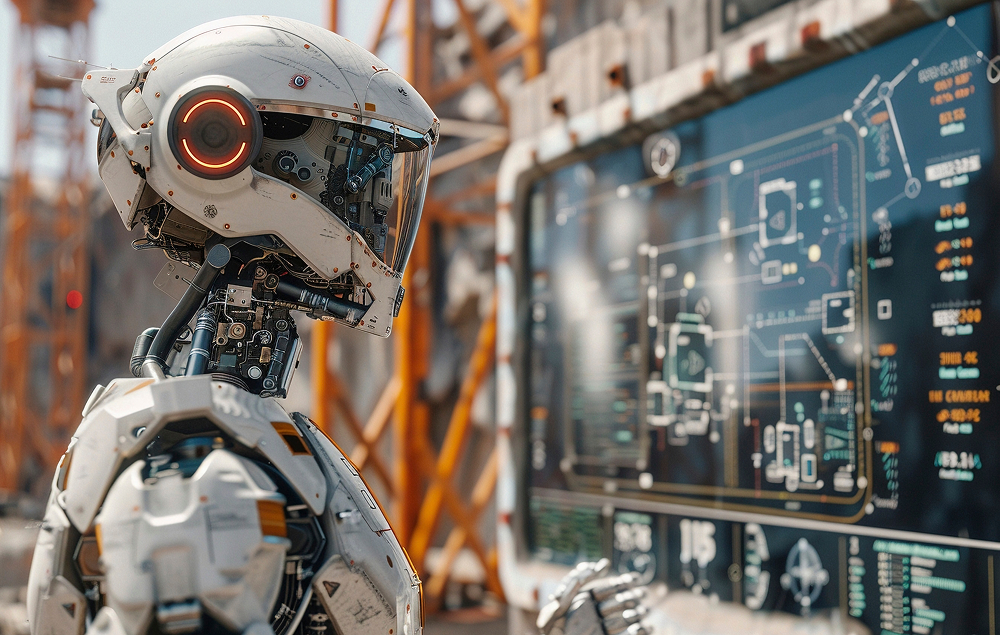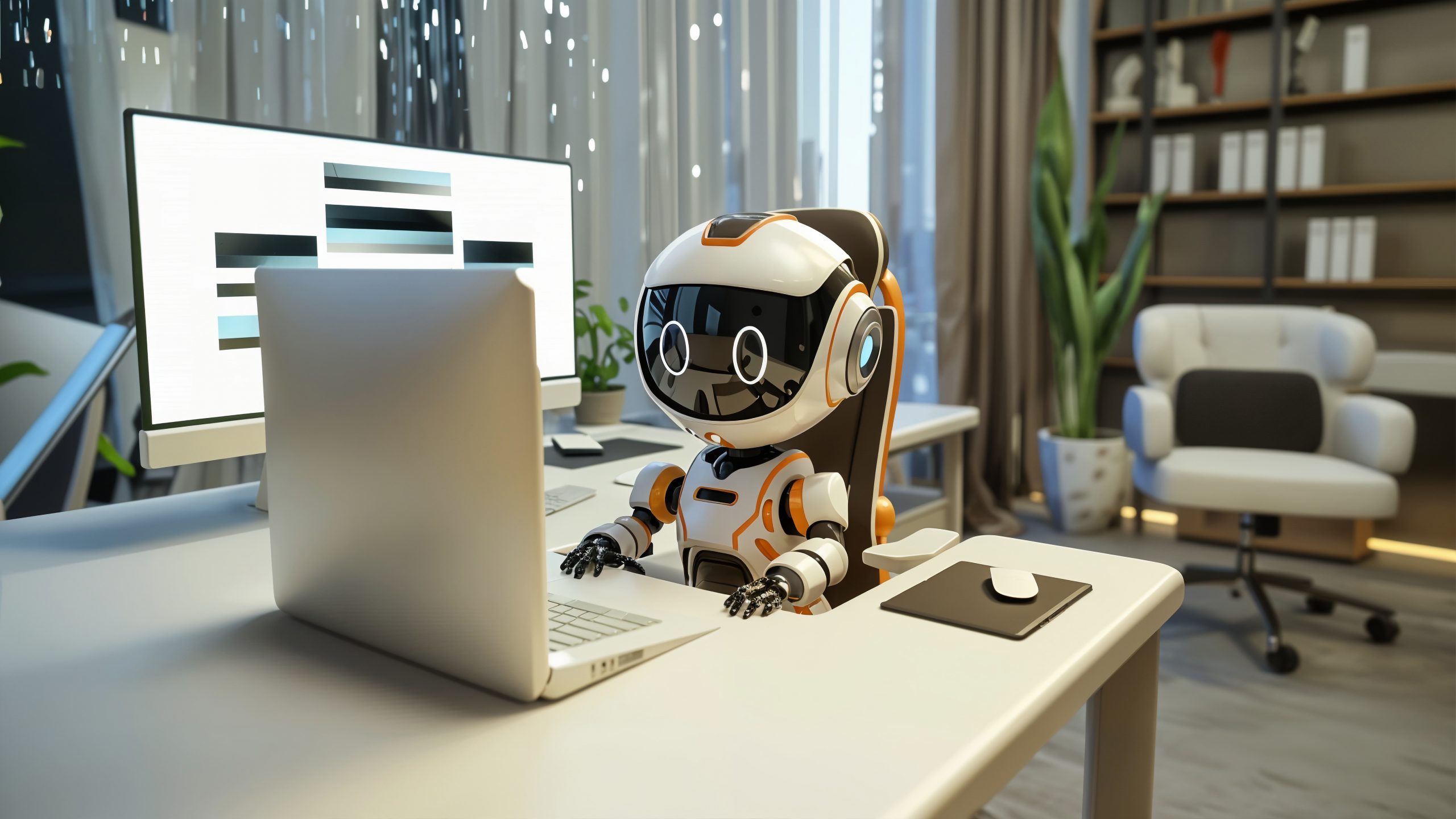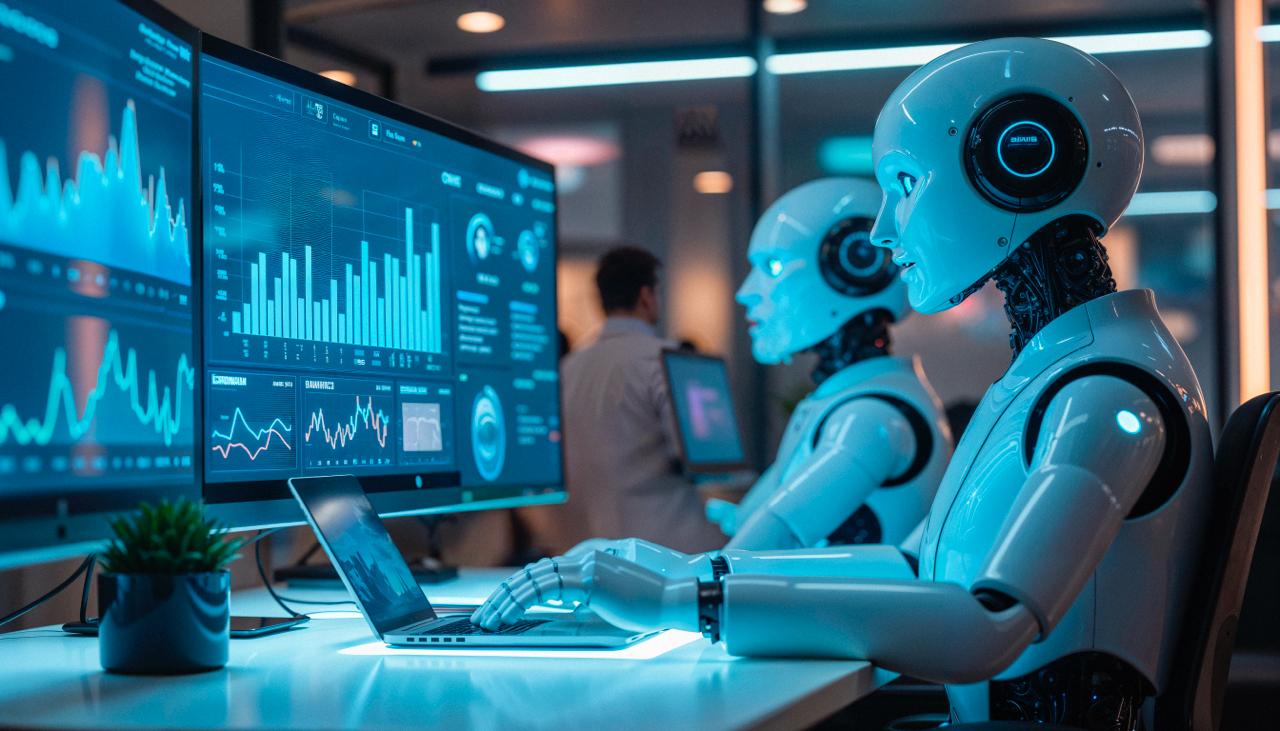Artificial intelligence ceases to be an experimental technology and becomes a key factor of efficiency in industry. Today, it spans all stages, from the factory floor to global supply chains. Companies use AI to optimize processes, detect defects in a timely manner and predict equipment failures even before they occur.
Some AI manufacturing companies focus on building specialized chips and software, while others develop full automation solutions powered by computer vision AI and predictive algorithms. From smart manufacturing systems to real-time quality control, the use of AI in manufacturing is no longer a future idea, it’s today’s competitive edge. In this article, we’ll explore key AI applications in manufacturing, share practical use cases, and explain how companies can adopt the right tools to stay ahead.
How Is AI Used in Manufacturing? Real-World Examples and Applications
Artificial intelligence is gradually turning the industry into a smarter and more efficient system. Today, factories use its capabilities not only for automation, but also for accelerated data-based decision-making.
One of the most popular applications is forecasting service. AI systems analyse data from equipment, identify hidden patterns and record early signs of possible failures. This approach allows companies to carry out preventive repairs before a problem develops into a costly breakdown. As a result, companies reduce unplanned downtime and significantly extend the service life of equipment.
Another major application is AI-powered quality control. Using computer vision, systems scan products on the line in real time to catch defects that the human eye might miss. It leads to more consistent product quality and reduced waste.
Generative AI is also becoming a key tool in design and prototyping. Engineers use it to explore new ideas quickly and test options without starting from scratch. AI helps plan, forecast, and respond to changes in demand more accurately.
Across industries from automotive to food production AI enables flexible, self-optimizing systems. These smart systems quickly adapt to changes, save energy and facilitate human–machine collaboration.
AI in Manufacturing Explained
AI makes manufacturing faster, safer and more efficient. It monitors every stage from raw materials to finished products.
One of the key benefits of AI in manufacturing is improved operational performance. AI systems can analyze real-time data from machines, predict when maintenance is needed, and help reduce costly downtime. AI enhances quality control by using computer vision systems to detect minute defects that human inspectors might overlook.
AI also plays a significant role in workforce support. It takes over repetitive or dangerous tasks like operating heavy machinery or handling hazardous materials so workers can focus on safer, more strategic roles. Generative AI tools are even used to test design ideas, simulate production scenarios, and plan more accurate production schedules.
Manufacturers also rely on AI to improve sustainability. Better forecasting and resource planning help cut waste, reduce energy use, and make operations and improve environmental performance. Overall, AI adoption leads to smarter solutions, lower risks, and stronger competitiveness.
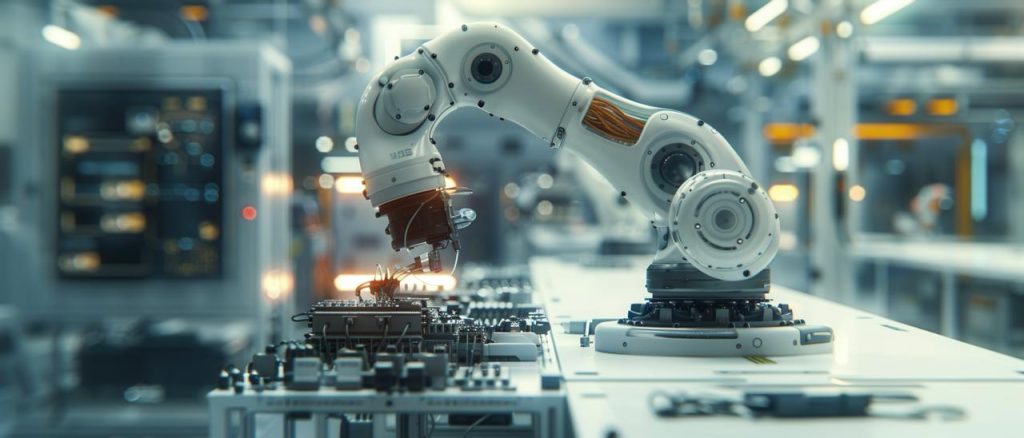
Manufacturing AI Market Overview
The sphere of industrial artificial intelligence is developing at a rapid pace. The growing demand for efficiency, accuracy and automation turns intelligent systems into an integral part of production processes. Today, AI solves a wide range of tasks: from predictive service and real-time quality control to generative design and supply chain optimization.
As enterprises become “smarter”, so does the need for solutions that reduce costs, increase equipment uptime and ensure higher quality output. All this makes AI not just a technology, but a strategic tool that determines the future of the industry.
The market is generally divided into three main segments:
- Pure-Play Startups – These companies solve narrow production tasks with the help of AI from defect detection to process automation. Their advantage is quick innovation and flexible development.
- Scale-Ups – These growing companies blend innovation with proven performance. Their solutions often cover broader needs, such as smart factory integration, energy efficiency, or AI-driven logistics, making them attractive to mid-size and large manufacturers.
- Established Tech Giants – Major players in the tech world bring full-stack AI platforms with robust capabilities across manufacturing and supply chain management. Their tools are designed to scale globally and help drive industry standards.
Together, these segments make up a competitive and fast-moving AI ecosystem that is reshaping the future of manufacturing.
Crossing the Data Barrier in Manufacturing AI
Despite the promise of AI in manufacturing, many companies are struggling to achieve meaningful results. The main obstacle is data. AI systems rely on clean, consistent, and structured data to function well but manufacturers often deal with siloed, incomplete, or low-quality information. Without a solid data foundation, AI models can’t deliver accurate predictions or useful insights.
To overcome this barrier, companies must first unify data across machines, departments, and locations. That means aligning systems, cleaning up records, and standardizing formats so AI tools can read and learn from them effectively. It’s also crucial to make data accessible in real time and tailored to each user whether it’s a plant manager or quality inspector.
Other challenges include a shortage of skilled AI professionals, lack of explainable models, and the cost of infrastructure. Many manufacturers are turning to cloud-based solutions to cut upfront expenses and simplify integration.
AI is powerful, but it’s not plug-and-play. Manufacturers need a clear strategy for collecting, preparing, and managing data before expecting results. Once this groundwork is laid, AI can truly begin to unlock efficiency, reduce waste, and transform industrial operations.
Why Do Companies Use Artificial Intelligence in Manufacturing?
Manufacturers turn to artificial intelligence to gain speed, precision, and adaptability in a fast-changing global market. AI thrives in manufacturing environments because these operations generate vast amounts of process, equipment, and performance data—exactly what machine learning models need to detect patterns, learn, and improve over time.
One of the main directions of AI implementation in industry has become predictive maintenance: by analysing sensor data, systems predict failures before they occur, reducing downtime and costs. Product quality is equally important – computer vision allows you to check products faster and more accurately than people, detecting defects at an early stage.
AI also increases the transparency of supply chains by aligning inventory with real-time demand. In product development, generative algorithms and modelling help engineers test new ideas without the cost of physical prototypes.
In addition, intelligent systems optimize energy consumption, production site layout, improve employee safety and reduce waste. Integration with IoT, sensors and robotics makes enterprises not only more efficient, but also more sustainable.
As a result, AI allows companies to scale smarter, strengthen competitiveness and bring the best products to the market faster at controlled costs.
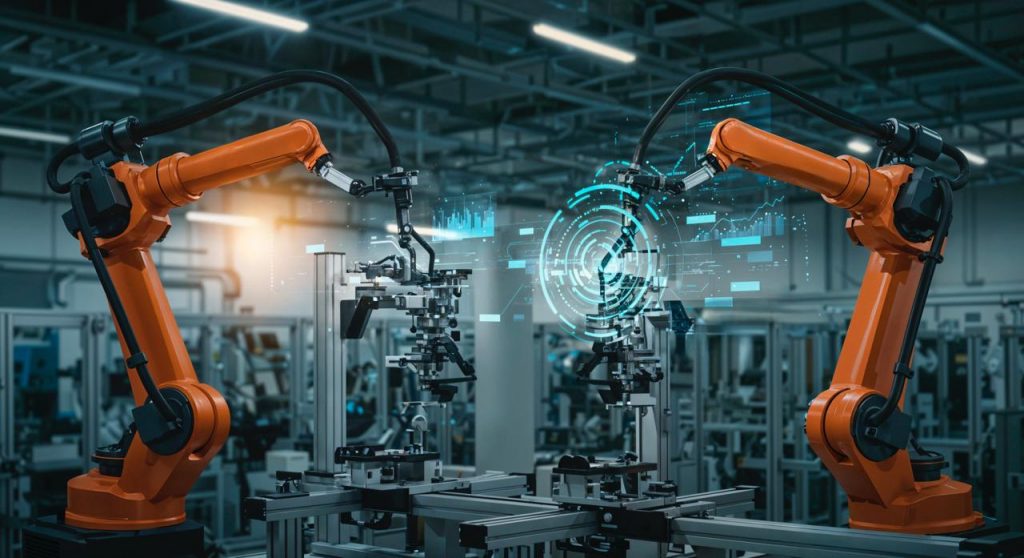
Top 20 AI Use Cases in Manufacturing
Modern plants and factories are increasingly implementing AI-based solutions to speed up processes, improve efficiency and make more accurate management decisions. Below we will consider 20 practical ways how artificial intelligence technologies help industrial enterprises remain competitive and ready for the future.
1. Digital Twin Technology
Virtual copies of equipment and production lines allow you to simulate work in real time. This makes it possible to identify failures, control performance and optimize processes without stopping real production.
2. Cobots (Collaborative Robots)
Cobots work safely next to people and increase productivity in production. AI helps them adapt to changes, avoid collisions and perform complex tasks such as assembly, inspection and welding. This reduces the burden on people and at the same time increases accuracy.
3. Predictive Maintenance
AI analyses sensor data to detect potential equipment failures, reducing downtime and extending equipment lifespan.
4. Custom Manufacturing
AI-based systems allow you to create personalized products without losing speed. Production settings are easily adjusted in real time to customer requirements – whether it’s cars, electronics or clothing.
5. Generative Design
Engineers set goals and limitations, and AI offers optimised design options. This speeds up development and helps to create lighter, stronger and more economical parts.
6. Factory in a Box
Modular manufacturing plants with built-in automation and AI can be installed almost anywhere. This reduces logistics costs and makes production more flexible.
7. Quality Control
AI-based computer vision systems check products faster and more accurately than humans, finding even minor defects. This increases the stability of quality and reduces the number of defects.
8. Supply Chain Management
AI helps to predict failures, automates procurement and improves logistics. The result is that orders are fulfilled faster and the risks of interruptions are reduced.
9. Inventory Management
Machine learning predicts needs and maintains the optimal level of warehouses. This eliminates deficits or surpluses and reduces storage costs.
10. Energy Management
AI monitors energy consumption and offers adjustments. Production is becoming more environmentally friendly and economical.
11. Workforce Management
Algorithms help to plan shifts, distribute tasks by skills and analyse employee productivity. This increases the efficiency of the use of labour.
12. Product and Spare Parts Search
Generative AI can interpret vague search queries and return precise results. Customers or staff can describe a part’s function or appearance, and the system will locate the correct item—even without a part number.
13. Document Search and Summarization
AI systems quickly find key information in manuals and reports, facilitating the work of engineers and managers.
14. Manufacturing-Adjacent Automation
AI takes on related tasks, such as processing support tickets, creating instructions or working with customer requests, easing the workload on employees.
15. Cybersecurity
Manufacturing systems are increasingly connected, making them targets for cyberattacks. AI detects suspicious activity in networks, prevents attacks and protects production facilities from digital threats.
16. Order Management
Algorithms track the fulfilment of orders, predict delivery times and help to eliminate exceptions quickly.
17. Purchasing Price Variance Analysis
AI analyses the market and supplier data, allowing purchasing departments to make profitable decisions and avoid overpayments.
18. Visual Inspections and Defect Detection
AI-based systems detect surface defects and inconsistencies, working around the clock and with constant high accuracy.
19. AI and IoT Integration
The joint work of IoT sensors and AI analytics gives a deep understanding of the state of production and improves security control.
20. AI for IT Operations (AIOps)
Modern plants depend on complex IT systems. AIOps automates monitoring, reduces the number of failures and maintains the smooth operation of digital solutions.
Artificial intelligence is becoming a key driver of industry development. From design and maintenance to supply chain and energy management, AI helps businesses reduce costs, minimise risks and innovate across production.
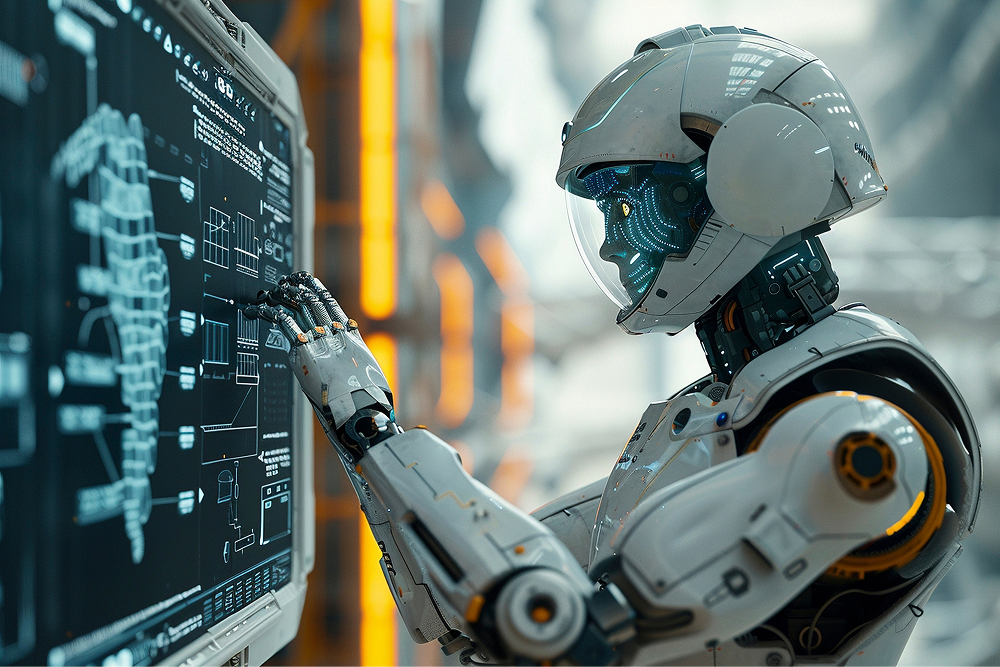
Benefits of Using AI in Manufacturing
AI helps manufacturers optimize costs in different areas. Predictive maintenance minimises costly unplanned downtime, and intelligent inventory control reduces excess balances and storage costs. Automation reduces labour costs and waste. Over time, such measures lead to more effective and profitable work.
Increased Efficiency
AI-driven automation handles repetitive, rule-based tasks with speed and precision. It streamlines workflows, reduces delays, and minimizes human error—freeing up workers to focus on higher-value activities. With smarter systems in place, processes from raw materials to final output become significantly faster and more efficient.
Cost Reduction
AI helps manufacturers reduce costs in multiple areas. Predictive maintenance minimizes expensive unplanned downtime, while smarter inventory control lowers excess stock and storage expenses. Automation reduces labor costs and waste. Over time, these savings lead to a leaner and more profitable operation.
Improved Decision-Making
AI analyses plant data in real time, allowing managers to make quick and informed decisions. From demand forecasting to equipment customisation, AI tools turn complex data sets into practical recommendations. Digital twins and simulation models additionally help to plan strategic changes, showing potential results even before their implementation.
Increased Safety
AI reduces risks for employees by automating dangerous tasks and controlling working conditions. Cobots take on heavy and hazardous work or work in extreme temperature conditions. Moreover, AI systems can warn in advance of potentially dangerous situations and equipment malfunctions, preventing accidents.
Sustainability
AI helps to optimise energy consumption, reduce waste and control the use of resources. By adapting production to real needs and environmental conditions, companies can introduce more environmentally friendly and sustainable practices, reducing the carbon footprint.
Innovation and Competitive Advantage
Generative design, digital twins and AI prototyping allow companies to bring new products to the market faster. In addition, AI helps to create customized solutions that meet the needs of customers and stay one step ahead of market trends.
Improved Maintenance and Operations
AI predicts when equipment needs maintenance and automates work planning. This approach extends the service life of the equipment, prevents costly breakdowns and ensures uninterrupted operation of production lines.
Enhanced Quality and Precision
AI-based computer vision systems detect even the smallest defects in the production process, ensuring stable product quality. They are able to adapt to design changes in real time, helping to prevent costly complaints and customer dissatisfaction.
Cost Efficiency and Business Value
AI increases productivity, reduces waste and accelerates production cycles, creating long-term value for the company. This is reflected in the growth of return on investment, an increase in margins and the strengthening of positions in the market.
Safety and Compliance
AI helps ensure regulatory compliance by monitoring safety standards and flagging nonconformities. Cobots and smart systems reduce risks for workers and support safer, more compliant operations.
As manufacturers continue to adopt AI, they unlock not just operational improvements but the ability to rethink how factories of the future will look and function.
Challenges of Using AI in Manufacturing
Although artificial intelligence opens up huge opportunities for production, its implementation is accompanied by a number of challenges. Companies face technical, organisational and operational obstacles that need to be overcome for a real return on AI. The following are the main difficulties faced by manufacturers:
Data Quality and Availability
AI systems work as well as the quality of the data they process. Many manufacturers face disparate, outdated or incomplete data, especially in the areas of quality control and predictive service. Without timely and accurate input, AI can give inaccurate or misleading results.
Data Source Limitations
Data is often stored in different departments and systems, so AI does not see the full picture. Integration of data from machines, suppliers and logistics is very important, but without reliable ERP platforms or intermediary software it is difficult to do.
Operational Risks
Manufacturing processes require precision. AI, especially generative models, sometimes gives inconsistent results. Misinterpretation of data or errors in forecasts can lead to product defects or safety issues. Human control remains necessary.
Skills Shortages
The shortage of AI talents is one of the most serious obstacles. Manufacturers often lack data specialists, machine learning engineers and experts with a combination of technical and industry knowledge. Training of existing staff or cooperation with external experts becomes a necessity, but complicates the implementation process.
Cybersecurity Concerns
AI integration increases the digital presence of the enterprise, creating new points for potential cyberattacks. Since confidential data and intellectual property are transferred between systems, manufacturers must implement strict cybersecurity measures to protect against hacking and industrial espionage.
Change Management
Introducing AI into manufacturing disrupts existing workflows and may raise fears about job loss. Resistance from staff and lack of clear communication can slow down implementation. Successful change requires employee buy-in, retraining programs, and transparent leadership.
Implementation Costs
High initial costs, software licenses, infrastructure modernisation and training can become an obstacle for small and medium-sized manufacturers. Cloud AI tools offer cheaper options, but scaling still requires long-term investments and planning.
Complex Task Automation
AI copes well with repetitive tasks, but complex or highly changing processes are more difficult for it. Making difficult decisions in production may require human intervention.
Technology Complexity
Understanding and managing AI systems can be daunting, especially when combined with IoT, robotics, and legacy infrastructure. Manufacturers often need outside consultants or full-stack solutions to bridge knowledge gaps.
To overcome these challenges, not only appropriate technologies are needed, but also strategic planning, consistency of corporate culture and constant support to fully realise the potential of AI in production.
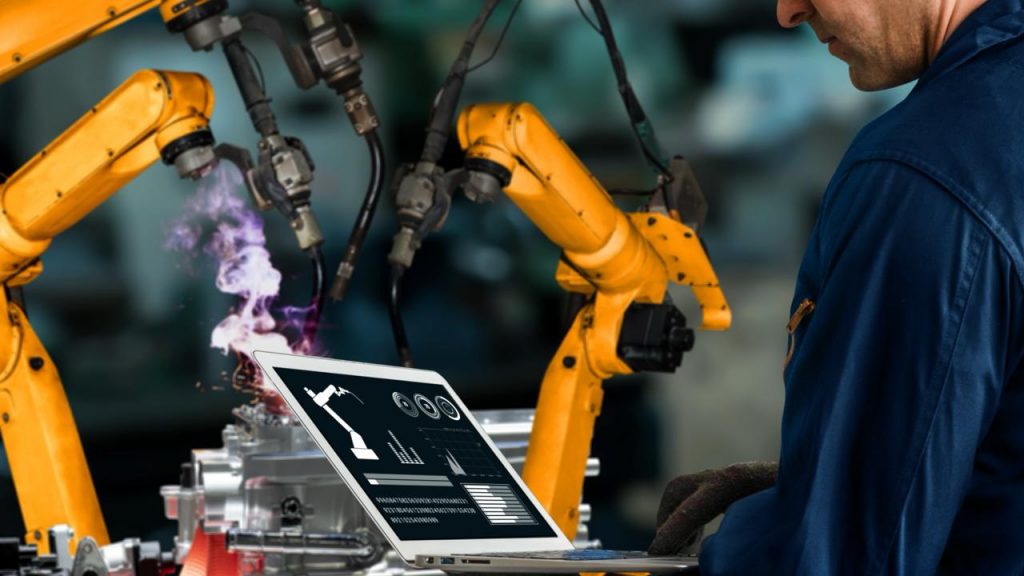
Safety, Security, and Responsible Use of AI in Manufacturing
AI is increasingly introduced into production, it is important to ensure its safe and ethical use. AI systems often work with confidential data, their own projects and operational information. Without proper control, this creates new risks – cyberattacks, data leaks and misuse of algorithms. Manufacturers should take a responsible approach to AI, focussing on security, compliance and transparency.
This includes selecting solution providers who adhere to strict security standards, protect customer and operational data, and refrain from using client data to train public models. Responsible providers build AI systems that are explainable, auditable, and aligned with ethical guidelines.
Cybersecurity is also a top concern. AI increases digital connectivity across factory systems, which can expose vulnerabilities. Manufacturers should ensure robust encryption, role-based access controls, and continuous monitoring to prevent unauthorized access or sabotage.
A clear policy on the use, training and control of AI helps to reduce risks and strengthen trust within the company.
As a result, manufacturers who view AI not only as a tool, but also as a responsibility – ensuring its security, fairness and accountability – will be better prepared for long-term success in the dynamically developing industrial sector.
Implementing AI in Manufacturing: A Step-by-Step Guide
- Data Collection and Analysis
Begin by identifying where relevant data is generated—machines, sensors, ERP systems, and manual logs. Clean, structured, and consistent data is critical for training AI models. Invest in real-time data capture and storage systems to ensure the information feeding your AI tools is accurate and usable. - Integration with Existing Systems
Choose AI solutions that can integrate with your current software stack—such as ERP, MES, or supply chain platforms. Seamless integration ensures AI can access the right data and deliver insights without disrupting existing workflows. Cloud-based or embedded AI tools often provide faster deployment and lower implementation friction. - Training and Upskilling Employees
AI adoption is as much about people as it is about technology. Offer training to help employees understand AI’s role in their work. Upskill operators, engineers, and managers to interpret AI outputs, adjust processes, and make data-driven decisions. Encourage cross-functional collaboration to bridge tech and operations. - Data Privacy and Security
AI systems work with confidential production data, so reliable security measures are important. Choose suppliers with a transparent data processing policy and compliance with industry standards. Use encryption, access control and regular audits to ensure that your AI tools do not jeopardise intellectual property or customer data.
Each step builds a foundation for scalable, responsible, and value-driven AI adoption in manufacturing.
Top 5 Companies Using AI in Manufacturing
1. GrayMatter Robotics
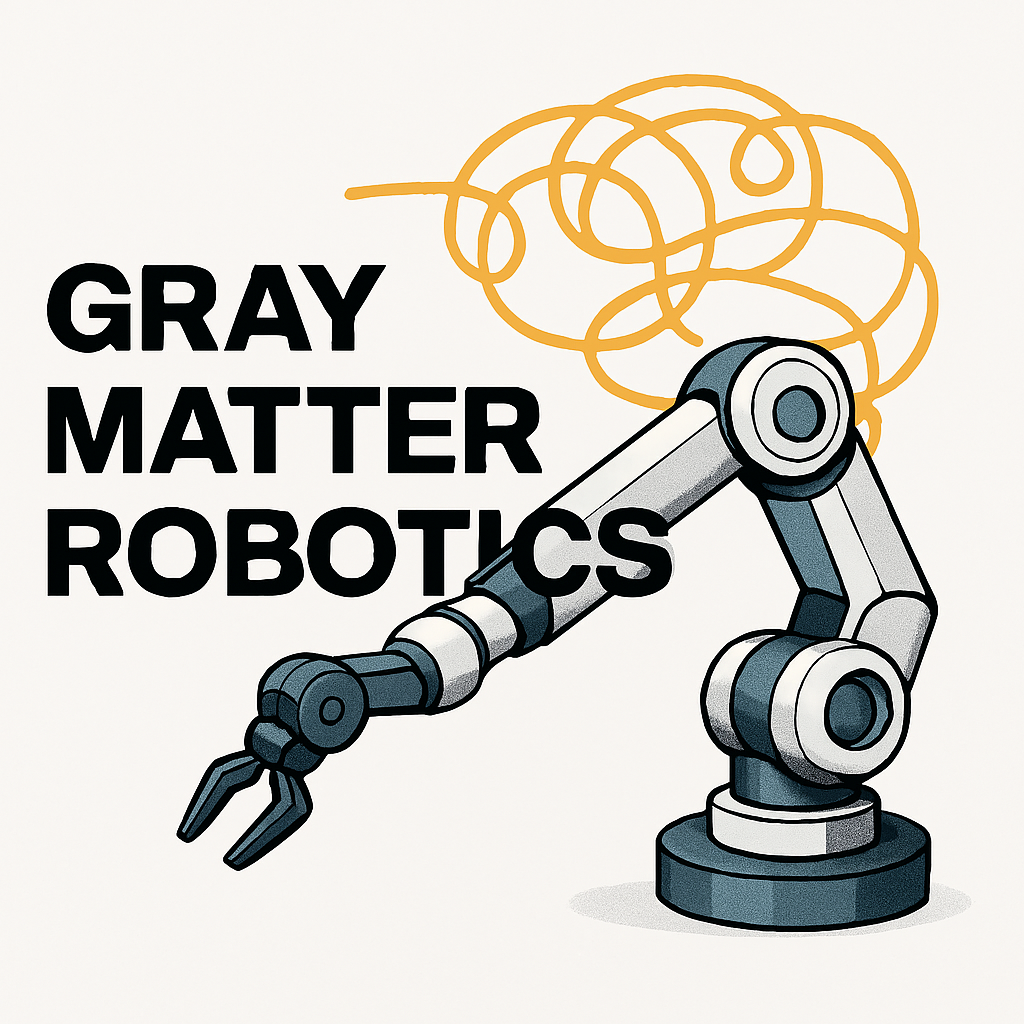
GrayMatter Robotics, based in Carson, California, develops robotic systems with artificial intelligence to automate labour-intensive production processes. Their intelligent robots combine AI and industrial automation, performing operations such as grinding, polishing and spraying with precision comparable to humans. This technology reduces the burden on workers, increases the stability of processes and increases productivity at the plant.
2. Augury

Augury from New York focusses on the condition of equipment and predictive maintenance. Its AI platform collects data from industrial equipment sensors to identify possible breakdowns before they occur. Manufacturers use Augury solutions to reduce downtime, improve the reliability of equipment and optimize service schedules, which saves money and increases efficiency.
3. Siemens
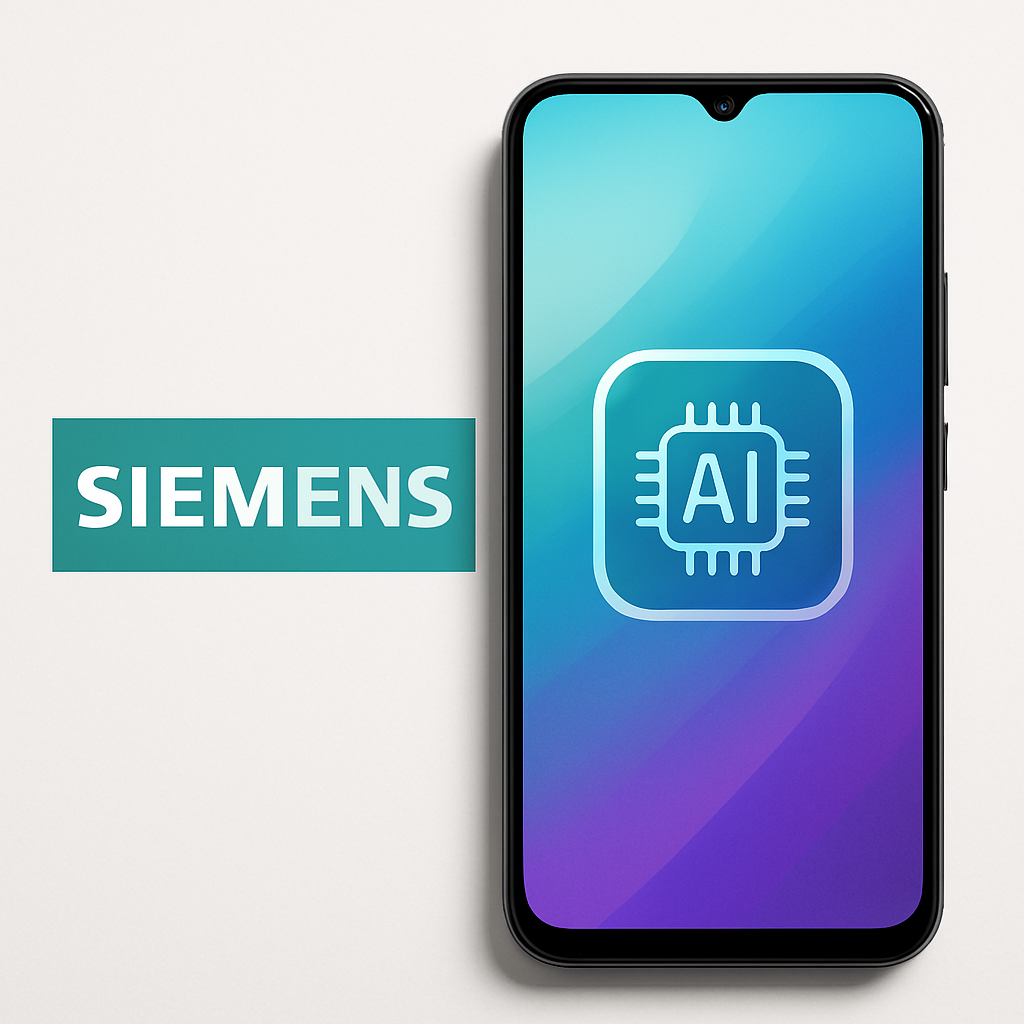
Siemens uses AI in industrial automation systems to help manufacturers optimize their processes and implement new solutions. By combining AI with edge computing and digital twins, the company provides real-time performance monitoring and quick production adjustments. Siemens’ AI tools are used for predictive analytics, quality control, and efficient process management.
4. IBM
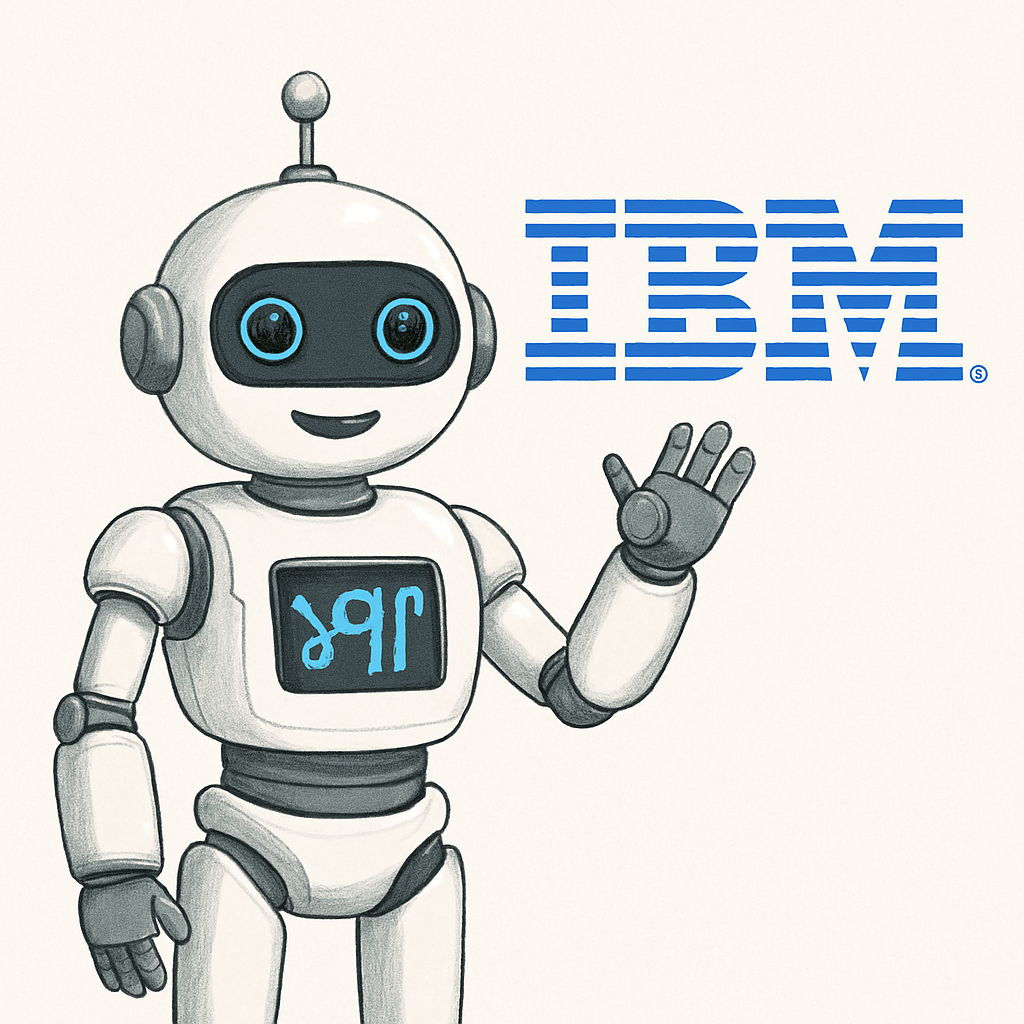
IBM uses the IBM Watson platform, providing manufacturers with real-time data analysis, process optimisation and predictive modelling capabilities. This helps to solve problems faster, reduce the amount of waste and make more flexible decisions. IBM AI is especially useful for tracking trends, optimising supply chains and reducing production delays.
5. Amazon Robotics
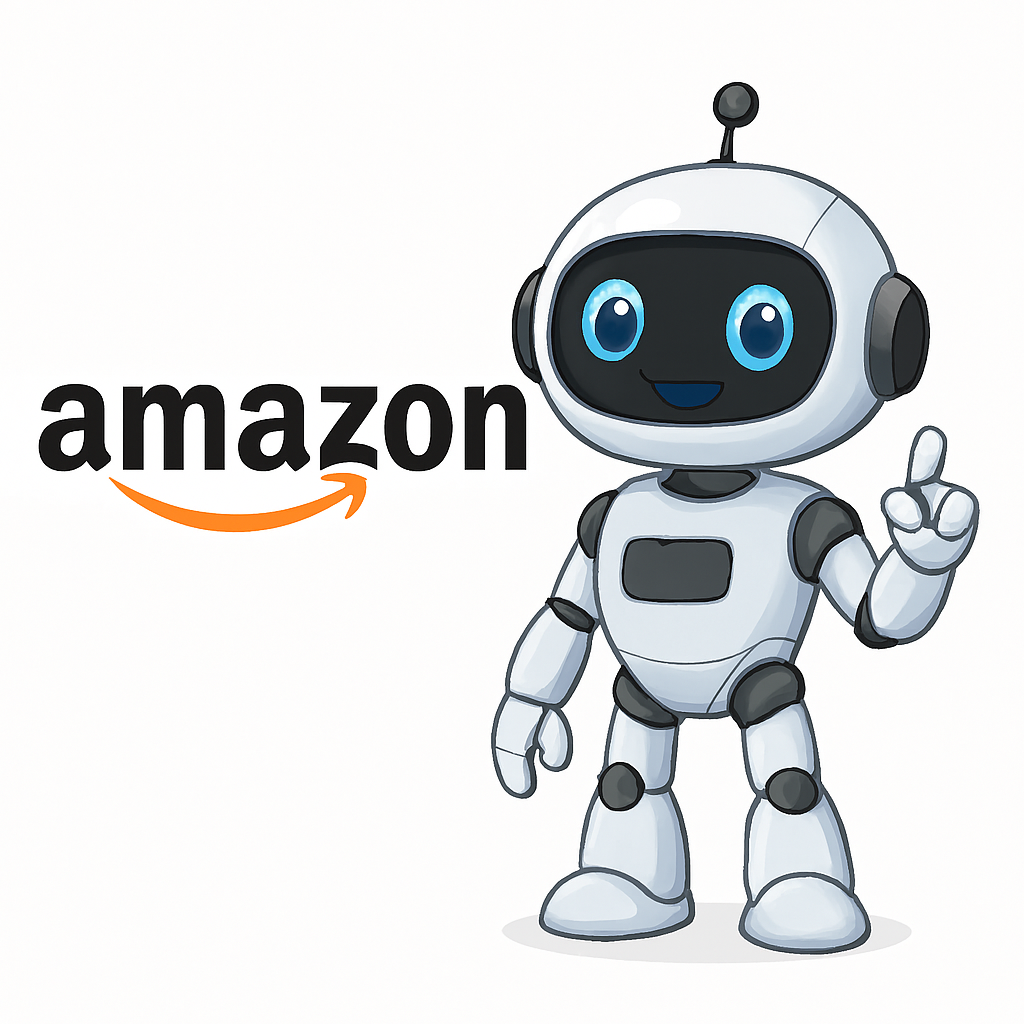
Amazon uses robots with artificial intelligence in its centres, for example, Vulcan. It is equipped with cameras and sensors, which allows you to safely collect and sort items with high accuracy. This reduces the need for employees to perform repetitive tasks and increases their safety and efficiency.
These companies show how AI is transforming manufacturing processes through automation, predictive maintenance, digital twins, and smart robotics.
Current Trends in AI and Manufacturing
AI is changing industry, making it faster, smarter, and more flexible. Key trends are shaping the future of smart manufacturing.
Generative AI
Generative AI helps manufacturers create product designs, documentation and optimize production processes. These models are able to generate new design options, taking into account the specified limitations materials, sizes or performance targets which accelerates product development and contributes to innovation.
Predictive Maintenance
One of the most popular applications of AI is predictive service. It analyses equipment data in real time and predicts breakdowns before they occur. This reduces unplanned downtime, reduces maintenance costs and extends the life of assets, making production more reliable and cost-effective.
Virtual and Augmented Reality (VR/AR)
VR and AR technologies improve employee training, collaboration on design and real-time production monitoring. Employees can master new processes in simulated environments, and designers and engineers use augmented reality to visualise and optimise complex assemblies. Such tools increase safety, accuracy and efficiency.
Blockchain Integration
Blockchain, combined with AI, is being used to improve supply chain transparency. It enables traceability of parts and materials, prevents counterfeiting, and ensures data integrity across suppliers. This is especially valuable for industries requiring strict compliance and audit trails.
Collaborative Robots (Cobots)
Cobots are designed for safe collaboration with humans and help boost productivity on the factory floor. Artificial intelligence allows them to adapt to changes, avoid collisions and perform complex operations such as assembly, quality control and welding. This reduces the burden on employees and at the same time increases the accuracy of work.
Edge Computing
Edge computing allows data to be processed right at its source, without relying entirely on cloud servers. This approach provides real-time analysis, speeds up decision-making at the plant, reduces delays and increases the response speed of automation and monitoring systems.
Digital Twins
Digital twins create virtual models of machines, systems or entire factories, allowing manufacturers to test scenarios, predict failures and optimize processes without risk to real equipment. In combination with AI, such models improve planning, product quality and asset management.
Together, these AI-driven trends are laying the foundation for smart, responsive, and sustainable manufacturing making factories more intelligent, adaptive, and future-ready.
Artificial Intelligence in Manufacturing FAQs
AI is used to optimize production, improve quality control, predict equipment failures, and streamline supply chains. It analyzes data from machines and sensors to detect issues early, automate routine tasks, and support better planning and decision-making.
Generative AI creates multiple design solutions or process variations based on defined goals and constraints. It’s used for rapid prototyping, product design, material optimization, and process improvement helping manufacturers innovate faster and reduce development costs.
The main challenges include job displacement, high implementation costs, data privacy issues and cybersecurity risks. In addition, there are problems associated with the accuracy of AI, its transparency and integration with existing systems. Effective management of these risks requires responsible deployment and constant supervision.
Yes. AI helps manufacturers to increase efficiency, reduce downtime, improve product quality and remain competitive. With a responsible approach to integration, technologies support both short-term productivity improvement and long-term innovation.
AI creates new roles in system maintenance, data analysis, and robotics management. It also supports reskilling and upskilling of existing workers, shifting labor toward more technical, strategic, and creative roles that AI cannot fully replace.
Conclusion
Artificial intelligence has long ceased to be a novelty in production – today it is a practical tool that delivers tangible improvements in production, quality control, maintenance, and supply chain management.From predictive maintenance and generative design to working together with robots and optimising energy consumption, AI helps manufacturers act smarter, faster and more efficiently. However, in order to fully realise these benefits, it is not enough just to install the software. Companies need to build strong data foundations, train their teams, and ensure responsible use to overcome challenges related to integration, talent, and security.
Regardless of whether you are starting to implement AI or expanding existing systems, we can support you at every stage of AI implementation. From selecting the right tools to developing customised solutions and ensuring compliance, our team has the expertise to help manufacturers realise their full potential of AI. Give us the opportunity to transform your production processes and prepare the plant for the future. Contact us to discuss how working together will make your AI strategy successful.
